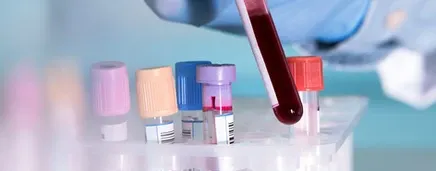

OVERVIEW
While the brain does indeed act as the organizing authority of the body, it does not operate within a vacuum. Optimal brain health and whole-body health have a two-way reciprocal relationship, as they both support and depend on each other. The human body seeks harmony and homeostasis across all bodily systems, including the endocrine, cardiovascular, gastrointestinal, and immune systems, just to name a few.
Acute neurological injuries such as TBI (traumatic brain injury), stroke, and concussion, as well as chronic conditions including PTSD, depression, and anxiety, often impact the entire gamut of bodily systems, not only the nervous system. These imbalances that result from brain injuries will often prevent the brain from healing itself.
It is absolutely imperative that one undergoes thorough blood chemistry analysis to identify these disruptions.
With the increasing fragmentation and specialization of the medical industry, neurologists tend to only look at the brain and nervous system rather than the body as a whole, harmonious unit. Treating the brain without addressing imbalances or disease in other bodily systems will never yield the lasting results that the patient desires. We know now that a holistic (simply meaning whole-body and mind) approach is not only preferable, it is in fact the only way to truly recover.
BRAIN INJURIES CREATE IMBALANCES IN OTHER BODILY SYSTEMS
When looking at a patient’s bloodwork, we often see issues that have arisen as a result of the brain injury. This can include hormonal dysfunction such as aromatization, for example, which causes a man’s testosterone to be converted to estrogen, and vice versa for women. This, as one can imagine, creates significant downstream effects for men such as lower energy levels and increased emotionality with less emotional stability, often leading to severe depression and sometimes even suicidal ideation.
With women who are aromatizing, they find themselves aggressive, combative, and sometimes unable to cope with emotional stressors. While these are intense experiences for the patient, we can identify this process quite simply through looking at their blood, and treat it with a high degree of success.
As mentioned above, brain injuries can create a wide range of downstream negative effects on other systems in the body. These resulting imbalances and issues can actually prevent the brain from healing fully, as the brain and body are interconnected in many ways. Even if the brain sees some short-term improvements during neurological rehabilitation sessions, an unhealthy gastrointestinal system, for example, would cause the brain to revert back to its previous state over the coming weeks and months.
It is imperative that all systems are brought back to harmony as close to simultaneously as possible. Though, sometimes certain conditions do take priority and must be addressed first. One of these situations would be when an autoimmune condition is involved.
BRAIN INJURIES TRIGGER UNDERLYING CONDITIONS
Brain injuries can actually trigger underlying conditions that were previously dormant, such as autoimmune conditions, that must be addressed. A relatively common example is when Hashimoto’s Thyroiditis, an autoimmune condition that results in hypothyroidism, flares up after a concussion or TBI.
Sometimes the patient wasn’t even aware they had this condition until the brain injury set it off. In this way, a concussion can be a blessing in disguise for patients who had previously been suffering in silence from the symptoms of Hashimoto’s. Now that “the scale has been tipped” so to speak from the head injury, the patient has a full picture of why they were experiencing issues before the concussion. We often see our patients feel even better than they did before the brain injury because of this.
Another common example of this involves Epstein-Barr Virus (EBV), which can be difficult to diagnose due to its symptoms resembling many other flu-like illnesses. EBV often lies relatively dormant until an event sets it off, such as a TBI, concussion, or stroke, and can create some delays and challenges in neurological recovery if not diagnosed and addressed.
As you can see, brain injuries can create different problems for different people beyond just the neurological symptoms. Looking at blood work allows our doctors to create treatment plans that are unique to each patient, and that address any underlying conditions that are preventing the brain from healing.
For more information about how we utilize blood chemistry analysis to inform our treatment protocols for TBI, stroke, concussion, and PTSD, please fill out this contact form.